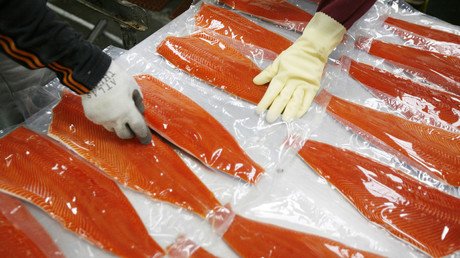What the heck does ‘natural’ food mean, anyway? Tell the FDA

The word “natural” is often used to describe hundreds of food products from various companies, but what exactly does it mean? The US Food and Drug Administration is trying to determine just that, and it’s asking people to contribute their thoughts.
The FDA does not currently have a formal definition for the word. On its website, the agency says that “it is difficult to define a food product that is ‘natural’ because the food has probably been processed and is no longer the product of the earth.”
However, after receiving three separate petitions asking it to define what “natural” means – plus another asking it to simply ban the word from food labels altogether – the FDA initiated a public comment period asking Americans to weigh in. They were asked to comment on how they define the word, as well as whether and how it should be used on food labels.
Due to the enormous response, the FDA extended the comment period by three months, from February 10, 2016, to May 10. So far, almost 5,000 comments have been submitted to the agency.
“I think the FDA should be allowed to define ‘natural,’” reads one. “It’s too broad of a definition right now and is used as a way to manipulate marketing to customers. If it is defined properly and not misleading, it can really help consumers and producers.”
Many comments highlighted the use of genetically modified organisms (GMOs), saying no food featuring these types of ingredients should be called “natural.”
“Natural should be used only when no artificial/synthetic flavors or colorings or preservatives have been used,” read one submission. “Natural should never be used for any product containing [genetically] engineered ingredients.”
“If it has been genetically modified, it is not natural! PERIOD,” read another.
When the public comment period is over, the FDA said it “will thoroughly review all public comments and information submitted before determining its next steps.”
Typically, the agency says it considered “natural” to mean that “nothing artificial or synthetic (including all color additives regardless of source) has been included in, or has been added to, a food that would not normally be expected to be in that food.”
However, it added that this definition wasn’t meant to address a number of food production issues that activists have become upset with, such as the use of pesticides or food processing methods like pasteurization.
The FDA has already come under fire for approving genetically engineered salmon for commercial sale. The fish can be grown twice as fast as regular salmon, and outside of regular complaints about “unnatural” GMO in the fish, critics are concerned about the consequences of GMO fish crossbreeding with natural ones if they get loose. A lawsuit was filed over the approval in April.
Meanwhile, many companies have started removing the word “natural” from their food labels for fear of being sued. According to a column at Time.com, just 22 percent of food products were called “natural” in 2013, while 34 percent of beverages were. These numbers are down notably from 2010, when about 30 percent of food and 45 percent of beverages were marketed as “natural.”













